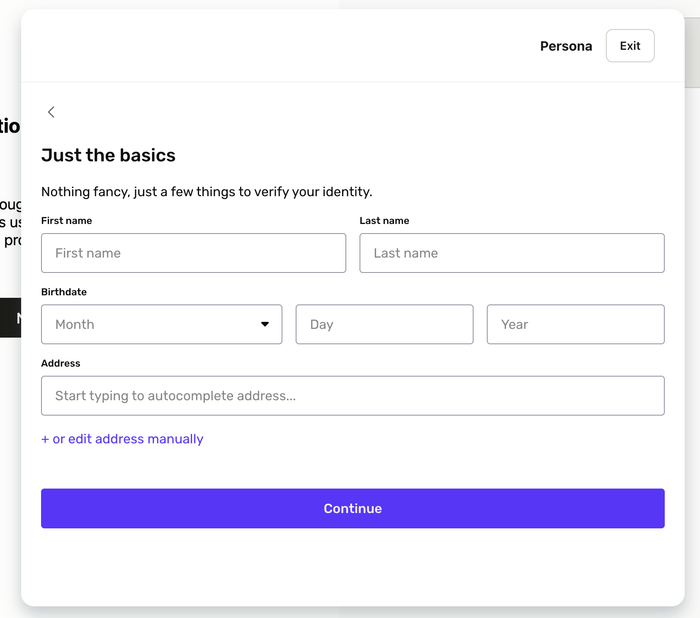Sandbox profiles
Sandbox Personas live in a new page called "Sandbox Profiles" in the Settings menu and include the following enhancements:
- Ability to name the profile
- Add description of profile
- Duplicate a profile
- Associate with workflow


Sandbox Personas live in a new page called "Sandbox Profiles" in the Settings menu and include the following enhancements:


Clients using Journeys will now see a "Validate" button on the Journey builder, which counts the number of Journey configuration errors you have, and, when clicked, shows you those errors on the builder itself. If you have at least one error, certain options from the ellipses menu on both the Journey builder and the Journey versions page will be disabled. Once all errors are fixed, those options will be enabled.
Please note, also, that we are also now requiring some kind of reconciliation logic to be set up on all Journeys, even if you are only sending single-entity applications through at this time. This is to help “future proof” your Journeys, in case you start sending in applications with multiple entities in the future!
The Alloy SDK now supports customization of the SMS text that gets sent to users who are directed to the mobile flow as part of business document collection.
On the SDK Configuration screen, clients will be able to select the option ‘Business Document’ and enter text that will form the SMS message that will be sent to users.

Dashboard setup instructions for the Alloy SDK are here and API docs are here. Reach out to your CSM if you'd like to get it set up.
We have updated our existing re-run application endpoint, making it possible to alter the payload data from the original run.
The API response and webhooks updates now allow clients to link the re-run(s) to the "root" JA in their system.
Check out our API Reference documentation here.
The Alloy SDK supports Persona's Form template flow!
Clients can create a template in their Persona dashboard using their "database" form flow and input that template ID in their Persona Workflow SDK Config in the Alloy Dashboard.

If you’d like to get set up with Alloy SDK, please reach out to your CSM.
Alloy's FinCEN integration now supports the full SAR lifecycle - initial, amended, and continuing reports! With the addition of continuing reports, clients can report when an entity continues to conduct activity in the 90 days since the last successful report submission. Field level validations help agents provide all of the required information to submit to FinCEN, reducing the chance of a report being rejects and helping agents spend less time updating and re-submitting reports.
Please reach out to your CSM or [email protected] if you'd like to be set up with this feature.
Configuring front end integrations for device tracking is hard but with the same singular SDK integration, clients now have access to document verification, phone centric verification, and device risk. Please reference Alloy’s API docs or reach out to your CSM help on setup.